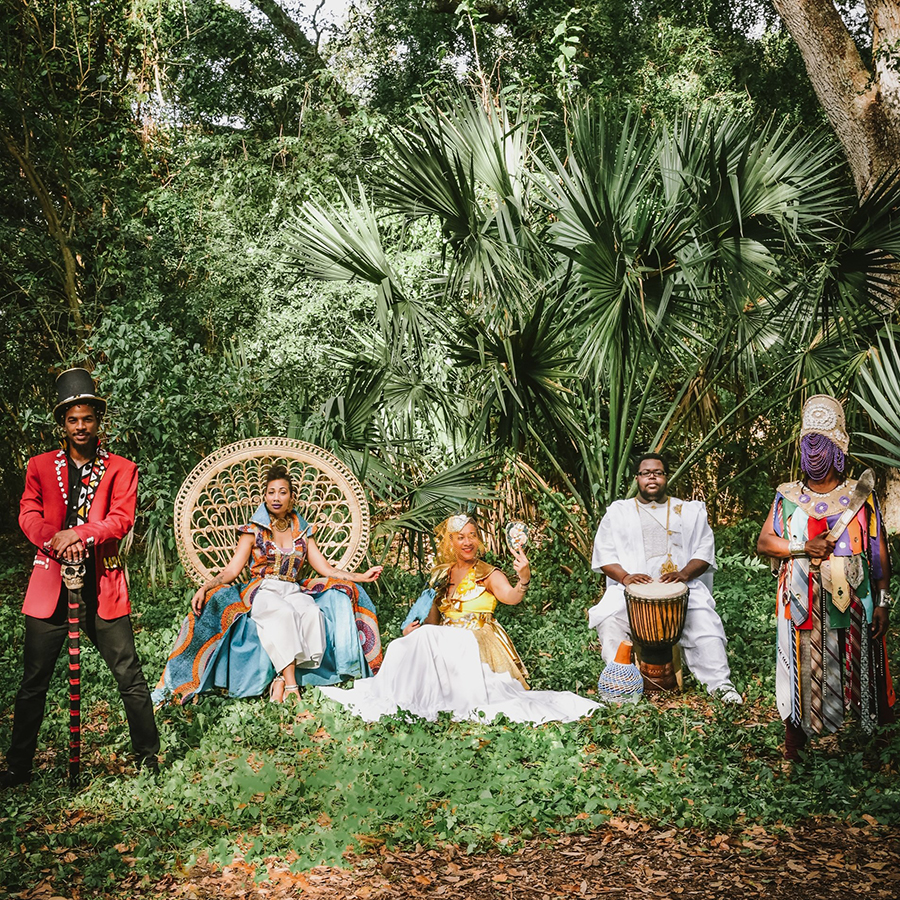"In the face of compounding historical traumas, environmental collapse, and chronic uncertainty, we know as a species that we need something radically different. Yet, many of us feel the pain of not knowing where to begin. In this course, we will explore and exercise our creative muscle in order to strengthen our visionary self. When we create as a form of prayer, the space inside and between us becomes a sanctuary. The opening of portals for futures unknown."
Grantmakers in the Arts
"In recent years, eye-catching demonstrations by artists have thrown major gifts from “tainted” sources into sharp relief, suggesting museums themselves should be mindful of how they make their money. In the wake of the Black Lives Matter protests, museums made strong public commitments to the values of diversity, equity, and inclusion—but two years later museum workers have questioned whether actions reflect words," said co-authors Laura Callanan (Upstart Co-Lab) and Maxwell L. Anderson (Souls Grown Deep). "One way that museums can strengthen their reputations and follow through on their public declarations is by aligning the billions of dollars in their endowments with their values and missions."
"Just as no two artists are alike, every arts community is defined by a distinct matrix of identities, perspectives, histories, and economic conditions," said former GIA board chair Ted Russell, and Lu Zhang. "In order to be successful at any level, arts funding must respond to these conditions. This is why our organizations teamed up to create The Rainin Fellowship, a program tailored for the arts communities of San Francisco’s Bay Area (the home of the Kenneth Rainin Foundation), developed alongside United States Artists, which has supported artists across the country for nearly 20 years."
"Nonprofit organizations pledge to serve communities through powerful missions. Often, those missions are around empowerment, restoration, safety, and wholeness for the marginalized within our communities. The past two years of racial reckoning has led the nonprofit sector to examine the ways in which white supremacy lives in our organizational systems," said Nonprofit Quarterly author Sequoia Owen. "Increasingly, nonprofits are publicly showing support for Black causes—at times, to distance themselves from the appearance of condoning racism. Operating as pro-Black, however, involves much more than releasing a statement of support for Black and Brown lives. It may not even require a change in organizational mission or new programming—an organization can make such changes and still operate with a white supremacist structure."
Headquartered in Atlanta, Georgia, South Arts is a nonprofit regional arts organization empowering artists, organizations, and communities, and increasing access to arts and culture. In partnership with the National Endowment for the Arts and the State Arts Agencies of Alabama, Florida, Georgia, Kentucky, Louisiana, Mississippi, North Carolina, South Carolina, and Tennessee — with additional funding from other public and private donors such as the Doris Duke Charitable Foundation, the Ford Foundation, and The Andrew W. Mellon Foundation — South Arts supports artists and organizations through a rich and responsive portfolio of grants, fellowships, and programs.
"Here we go again. It’s a year later and we’re back where we started," said author and Founding Director of Women of Color in the Arts Kaisha Johnson. "It’s so disheartening, although not surprising, to see historically and predominantly white arts organizations and cultural institutions pulling out all the stops (and red flags) to acknowledge Juneteenth this year. After all the hollow statements of solidarity — which I expressed as extremely problematic in a Medium article last year, I find myself in the same space — giving a metaphorical and literal side eye to our sector."
"The Office of Juvenile Justice and Delinquency Prevention at the U.S. Department of Justice released new funds to develop, enhance or expand art programs for justice-involved youth. The purpose of Arts Programs for Justice-Involved Youth is to support collaborations between arts-based organizations and juvenile justice systems that focus on current and previous justice-involved youth, including Tribal and Indigenous youth, to reduce juvenile delinquency, recidivism, and/or other problem and high-risk behaviors."
"It has now been more than two years since George Floyd’s murder sparked the historic 2020 summer uprisings for racial justice. Since then, the debate about race in the US has remained center stage. Racial justice movement leaders and organizers continue to demand a reckoning with the nation’s history of racial exclusion and oppression. At the same time, a white nationalist, anti-democratic, and increasingly violent faction has gained prominence," said Nonprofit Quarterly author Kyle Strickland. "A central question is how to advance racial and economic justice while US democracy continues to backslide. Significant challenges remain: public opinion on issues of race continues to waver amid weaponized racist backlash; Republican-led state legislatures are passing sweeping voter suppression measures; and a reactionary Supreme Court is rolling back civil rights and freedoms. Meanwhile, Democrats are divided over strategy, vision, and goals."

